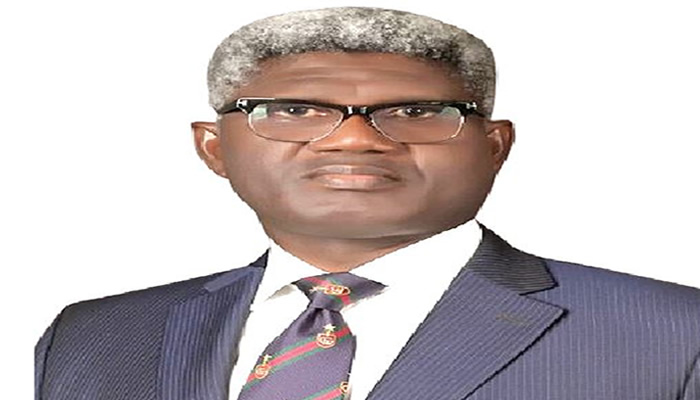
A Senior Advocate of Nigeria, Norrison Quakers speaks to AYOOLA OLASUPO about the workload of the Supreme Court, and off-season elections in the country, among other issues
Do you think a decentralised Supreme Court can ease or reduce the workload of the apex court for the effective delivery of justice?
From the look of things, there is a need to amend the constitution in line with the jurisdiction of the Supreme Court. It’s not all appeals that get to the Supreme Court in the civilized clime. Even in South Africa, some appeals will not go beyond the cupboard. The Supreme Court nowadays is a policy court that should be saddled with constitutional issues. We recall that some years ago, governorship petitions were terminated at the Court of Appeal. At that time, the jurisdiction of the Supreme Court had not been expanded to also hear appeals from Election Petition Tribunals as regards governorship elections.
So, we currently have appeals from Election Petition Tribunals to the Court of Appeal and then to the Supreme Court. That is one of the problems. The constitution has to be amended to ensure that the jurisdiction should be streamlined. If you look at the Nigerian constitution, we have the High Court, the Court of Appeal, and the Supreme Court. Some matters are settled and it is not every matter that should go to the Supreme Court. Where the issue of law is well settled, why must the Supreme Court hear everything? In other civilized climes, if the appeal is won where the issue is settled, you have to write a brief argument to convince the Supreme Court why a panel must be constituted to hear the appeal. A typical case is a case on injunction.
When you want to obtain an injunction, the Supreme Court has already laid the guidelines for what any court must look at for either granting or refusing an injunction. If the principles are applied and the applicant is found wanting, the injunction is refused. Why go on appeal? You appeal to the Supreme Court which has already laid down the guidelines or the procedures for the grant or refusal of the injunction. So, the problem is not in the rules or regulations.
We are our problems and the cause of our challenges. It is just unfortunate that we have found ourselves in this mess and that the burden of the Supreme Court is increasing by the day. Even if you increase the number of justices to 21, the court will still be overstretched. The constitutional number is 21. They (justices) increased the number to 21 because we are in a litigious society.
Do you think a specific number of cases should go to the Supreme Court to ease the backlog of cases currently at the apex court?
As I said, the only thing for that to work is the need to amend the constitution and this needs to be done to take certain powers away from the Supreme Court and limit it to the Court of Appeal, but Nigeria is also a unique environment in the sense that if for some reasons you suspect that the justice of the case has been mortgaged, how then do you review that decision? We live in a country where our system is prone to abuse. I hope you are aware that the original jurisdiction of the Supreme Court is well defined and oftentimes, it bothers on major constitutional matters involving a state and another state, the state, and the Federal Government. In other words, the original jurisdiction of the Supreme Court is as regards constitutional interpretation, and disputes between the federal and the state governments. So, it is well-defined.
There are suggestions that the Supreme Court should have divisions in the entire six geopolitical zones like the Appeal Court. What is your view on this?
Again, that is another problem. If you are going to suggest that the Supreme Court must have divisions, we have 36 states in the federation, and if you want to do it along the geo-political zones, what will then happen to the Courts of Appeal? What will happen to the number of justices? It will increase. When you have the financial capacity to cope and handle that, you will see how they do it in other civilized climes. I was privileged to appear in some matters in England, and to be candid, if you go on appeal in a manner that they consider to be frivolous, you will pay a humongous cost. You can also be recommended for disciplinary proceedings; for professional misconduct because some matters do not even need to go on appeal.
Some matters can even be terminated at the High Courts. Before you can cross the hurdle of the High Court to get to the Court of Appeal, you will sweat not to speak of getting to the Supreme Court. You can only go there under a special lane; so, you must convince the Court of Appeal what the issue is before you can take it to the Supreme Court because this is the policy court. At that level, you probably have academicians; those who are seasoned tutors of the law.
I will tell you why I believe strongly that the constitution should be amended. Now, if you go to the hierarchy of court, let’s look at Section 6 of the 1999 Constitution, particularly Sub-section 5. It says that this section relates to the Supreme Court of Nigeria, the Court of Appeal, the Federal High Court, the National Industrial Court, the High Court of the Federal Capital Territory, Abuja, and the High Court of the states, the Sharia Court of Appeal of the Federal Capital Territory, Abuja, the Sharia Court of Appeal of the states, the Customary Court of Appeal of the Federal Capital Territory, Abuja, and the Customary Court of Appeal. Such other courts may be authorised by law to exercise jurisdiction at first instance or on appeal on matters concerning which a House of Assembly may make laws.
So, in this section of the constitution from sub-section 1, it talks about judicial power. The judicial powers are vested in this hierarchy of courts and at the top is the apex court; the Supreme Court of Nigeria. We should now go to the section creating the Supreme Court itself and the power vested in it. I’ll take you to Section 230 Chapter 7 which says there shall be a Supreme Court of Nigeria which shall consist of the Chief Justice of Nigeria, such number of the Justices of the Supreme Court not exceeding 21.
So, if you now decide to create divisions in the Supreme Court, whatever the divisions you create, the number of justices must not exceed 21. Now, how many appeals do we have? Where are all the appeals coming from? We have 36 states, the FCT, and the Federal Government of Nigeria. So, when you look at all of these provisions, you can see why the burden on the Supreme Court is heavy. Appeals from election petition tribunals as regards the presidential election, appeals from the Court of Appeal, the Federal High Court, the Court Marshal, and State High Courts will go to the Supreme Court. So, for us to ensure that the docket of the Supreme Court is free, there is a need to amend the provisions of the constitution. There is no doubt about it because the Supreme Court is overburdened and this burden has been placed upon it by the constitution.
Election outcomes have always been a bone of contention and the people have always said that the best way to tackle the issue is to amend the Electoral Act in such a way that the timeframe given to judges to address all litigation before the inauguration of winners will be increased. Do you think this is what the country needs at this point?
If you can use the procedures of the Electoral Act to guide yourself, you are meant to compare and contrast the results that your party agents have collected to know if they are the ones that were eventually announced. So, if I am going to the Election Petition Tribunal, I must check what I want to go there to establish. Kenya is not as populous as we are but their presidential election was quicker, and that impacted the tribunal hearing at least in Africa. So, if they can do it in Kenya and their constitution is similar to ours, I do not see why we can’t do the same.
If you’re saying that the person who won did not win, and mind you, qualification is based on facts guided by law. I will keep saying that if the law says you must do all of these within 180 days, from the period the result is around to when the court sits and the judgment is delivered, it is more than enough. I don’t think we should tamper with the provisions of the Electoral Act by expanding it.
Some people have also called for an end to off-season elections, claiming that such elections are unnecessarily wasting the country’s resources. Do you think it is realistic to put an end to off-season polls?
I see it as something that has come to stay, whatever way we see it. Let’s start with Senator Rashidi Ladoja of Oyo State; when he was removed, his deputy stood in and became the governor, while he was still pursuing his appeal. After he was reinstated, he went back to court for the court to define the term but the court said to him that his deputy held up when he was removed and it was a joint ticket. Peter Obi, as governor of Anambra State; when he was removed by the Anambra State House of Assembly and challenged his removal, eventually he was reinstated.
The election was conducted and Andy Ubah won and was re-sworn as governor of Anambra State, Peter Obi went to court to get the court to define his tenure, and part of the argument that was put forth was that INEC was wrong to have organised the election when they knew that Peter Obi had gone to court for tenure determination. So, whatever INEC organised during that period was nothing but a sham, a waste of resources, and the office was not vacant. So, having this kind of situation can only happen when elections are being challenged. The only thing that we can do to avoid all of these is that until petitions are determined, the government remains in office and we’ve been given a timeframe. Swearing-in has now affected May 29; so, it (off-season election) has come to stay.
What can we do better in that regard, especially as it concerns conducting credible elections?
Over the years, we have come to experience voter apathy. People no longer vote because they feel that their votes will never count. Security agents have been paid to compromise, and INEC has been accused of not doing what they ought to do. There are some things we cannot let go. It has to do with our attitude and the system. Even if they put the law in place to say election riggers should be shot. When the immediate past President said anybody seen with an AK47 should be shot on sight, what happened? Nothing came out of it. Let’s be realistic because we need to talk to ourselves. As long as there are considerations like ethnic, religious issues, and so on, this will continue. If I’ve been benefitting from your government, do you think I will want you to be removed? All kinds of biases and prejudices will continue to impede growth and development.





